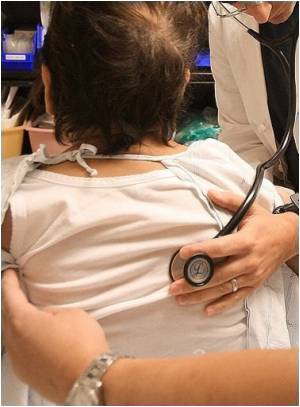
Asked how many of the original flock remain, Thu gives a muffled grunt and says: "One third."
He fears even they may not survive.
"I'm very sad," he says, before slowly inhaling on a cigarette.
Thu, a longtime bird hobbyist who raises orchids for a living, says the Hanoi government invited him and his birds to be part of the city's 10-day birthday party in October. They even gave him some funding, he says.
"I gathered birds from different parts of the country, and fed and raised them in Danang," the central-Vietnam city where he lives, adds Thu, who declines to reveal his age.
Advertisement
"I have a desire for peace, for Vietnam and for the world," explains Thu, who sometimes wears a cowboy hat over his crew cut, and keeps a traditional flute in his rented Hanoi room.
Advertisement
Such a large flock had never before taken to the skies over Vietnam's capital, says Thu, who trained them all to return to the Botanical Gardens where he hoped they would remain as a message of peace.
A thick photo album which Thu keeps from that time shows many pictures of him surrounded by large flocks of white pigeons in the gardens. A walkway leading to a small island is shown crowded with birds.
These days little more than a dozen white pigeons can be seen on the small island in the park, where big blue bird houses seem almost deserted.
Thu pokes a toothpick into his mouth and reluctantly explains what happened to most of the birds.
"Some were caught... so they brought the birds back home to raise them, or even to kill them for the meat."
He says he witnessed some of the thefts himself, and police caught other birdnappers.
Local media reported that Hanoi police arrested six people who had allegedly stolen hundreds of the birds and sold them to restaurants.
City markets commonly sell dark-coloured pigeons for meat.
Thu says most of his remaining white pigeons are afraid to return to the bird houses and have sought refuge in surrounding trees.
He does not blame anybody for what happened, only his country's sad history of warfare.
"Vietnamese people suffered quite a lot so they didn't have the chance to behave properly," he says.
Other birds became ill after they drank from the polluted lake in the Botanical Gardens, he says in an interview at the hostel room where he has stayed for four months.
"All the lakes in Hanoi are polluted," Thu says.
For visitors to the Botanical Gardens, a peaceful refuge from Hanoi's chaotic streets, Thu and his white birds were a welcome sight but they say he needed more help to protect them.
"The pigeons here were beautiful," says Tran Huy Hoang, 75, a war veteran who visits the park almost daily and has watched the flock deteriorate.
"Step by step, the number of birds just decreased, and the birds do not look good either," says Hoang.
"I think authorities must join hands to increase people's awareness about protecting the environment, the birds, the animals."
Nguyen Thi Mai, 54, a housewife walking in the Gardens, regretted the loss of the pigeons and said they had not been properly looked after.
"The park management board should really do their job better in ensuring a good environment here," she laments.
Thu says he made three reports to city authorities about the birds' need for a clean water supply and for a sign warning people not to harm them.
"I haven't received any reply," he adds. "I don't understand."
Attempts by AFP to reach the park director were unsuccessful. Her staff said the birds are now managed by city authorities, not the park. Officials at the Department of Culture, Sports and Tourism could not say exactly who is in charge of the birds.
Thu says he has been returning daily to feed his remaining charges with rice and corn, and to fill pans of water for them.
Now he has to go back to his orchid farm in the southern city of Dalat and says he will arrange for somebody to continue looking after his flock -- no matter how small it gets.
"Even if there's one or two birds, someone must still feed them," he says.
Source-AFP







